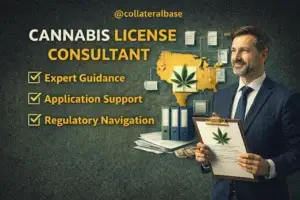 Winding up your small business involves a detailed process to ensure proper shutdown of your company and compliance with legal requirements. This includes business dissolution, or maybe bankruptcy, settling with creditors, and managing assets.
Winding up your small business involves a detailed process to ensure proper shutdown of your company and compliance with legal requirements. This includes business dissolution, or maybe bankruptcy, settling with creditors, and managing assets.
Key steps include business valuation, liquidation of business assets, and paying off debts and taxes. You’ll need to handle inventory, terminate employee contracts, and close final accounts. Inform customers and shareholders about the closure, and keep thorough business records. A liquidator may be necessary if facing insolvency or bankruptcy. This comprehensive process ensures all obligations are met and the business is properly terminated. Here is our easy guide on how to wind up your small business in the top 10 steps you need to take.
1. Assess Your Business Situation
Pausing to assess your company’s situation is the first crucial step. What is the overall state of your business operations?
Consider financial aspects, customer relationships, and employee morale. Are there outstanding debts or pending lawsuits that need addressing?
This foundational analysis will guide your next steps, ensuring a comprehensive approach. You will understand the financial health and operational state.
Also, review your inventory, contracts, and obligations. Determine what must be settled immediately and what can be managed more flexibly.
A thorough evaluation now sets the stage for an orderly and efficient wind-up process.
2. Notify Stakeholders Early
Before winding up your small business, ensure all stakeholders are informed about your decision and the subsequent steps.
Key stakeholders, such as employees, customers, and suppliers, should receive clear and concise communication outlining the closure timeline and their roles in the process. Transparent communication helps minimize surprises and fosters goodwill, potentially aiding in future professional relationships.
Additionally, make use of a written announcement to formalize your intentions. By offering detailed explanations, you can build understanding and trust, ensuring everyone involved knows what to expect and can prepare accordingly.
Moreover, scheduling face-to-face meetings with significant stakeholders, where feasible, can reaffirm your commitment to transparency. This proactive approach will reinforce trust, demonstrating your regard for their ongoing support and collaboration.
3. Settle Outstanding Debts
Begin by assessing all financial obligations.
To efficiently wind up your small business, first compile a comprehensive list of all debts. This includes loans, credit lines, unpaid invoices, accrued interest, and outstanding bills to suppliers. Next, prioritize these debts by their urgency and potential legal ramifications. Addressing high-priority obligations early can prevent complications down the line.
Communication is vital.
Engage creditors and inform them of your closure plans. Discuss possible payment arrangements or settlements. Transparency with creditors can lead to more flexible terms and favorable conditions.
Consider legal counsel.
Consulting legal professionals ensures compliance with financial obligations during the wind-up. Their expertise can guide you through any legal complexities, safeguarding against potential legal disputes.
Record all transactions meticulously. Detailed documentation of the debt settlement process ensures clarity and provides essential records for future reference. Keeping these records can prevent misunderstandings and support any reviews or audits that may arise.
4. Cancel Business Licenses and Permits
Canceling business licenses and permits is a crucial step in winding up your small business. But where should one start?
First, create a comprehensive list of all the licenses and permits your business holds. This will include federal, state, and local permits. Ensuring that nothing is overlooked is essential.
Next, contact each licensing authority to inform them of your business closure. Request the necessary forms or procedures to formally cancel your licenses and permits. Follow their instructions carefully.
Remember to keep confirmation receipts for your records. These documents can be valuable proof that you’ve officially terminated your business’s legal obligations. This step can help avoid future complications.
Finally, consider informing any relevant industry associations about your closure. This ensures that all potential areas are covered regarding your business permits and licenses.
5. Close Business Accounts
Once licenses are canceled, turning attention to business accounts will help wrap things up smoothly.
First, close any business bank accounts to prevent further transactions. This includes checking accounts, savings accounts, and any other financial products associated with your business. Communicate directly with your bank to ensure all outstanding checks have cleared, and there are no pending transactions.
Additionally, notify your credit card companies and formally close all business credit lines. It is vital to settle any remaining balances before closing these accounts. Doing so prevents any unnoticed fees from accruing and impacting your credit in the long run.
Lastly, ensure that you obtain written confirmation of account closures from all financial institutions. This documentation will serve as evidence of the final steps in winding up your business. By meticulously closing accounts, you protect your financial standing and simplify potential future audits or inquiries.
6. Liquidate Assets
Starting to liquidate assets is essential.
Plan and prioritize which assets to sell first. Begin by identifying items that will bring the highest returns. This might include equipment, furniture, inventory, or intellectual property. Understandably, timing can be crucial in maximizing the value of these assets.
Remain methodical throughout.
Organize your efforts by creating a detailed inventory. List out all assets, estimate their current market value, and decide the best means to sell each item.
Consider professional assistance for high-value or complex assets. Professionals can help navigate the nuances of the market, ensuring you get fair value. Their expertise can significantly streamline the process, providing you with the best financial outcome possible.
7. File Final Tax Returns
When closing your business, filing your final tax returns is a crucial step.
It’s imperative to complete all required tax documents to comply with state and federal regulations. This ensures your business affairs are wrapped up correctly.
Different business structures require different forms. Sole proprietors, partnerships, corporations, and LLCs each have specific final returns they must file.
Ensure all income, deductions, and credits are reported accurately. Misreporting can delay the closure process and incur penalties.
Consult with a tax professional. Their guidance will ensure compliance and accuracy.
8. Handle Employee and Payroll Matters
Closing a company affects employees significantly, making fair compensation vital before cessation of operations.
First and foremost, it’s essential to prepare a final payroll ensuring every last wage, salary, and bonus is accurately calculated and distributed. Additionally, communicating clearly with employees about their last paycheck, benefits termination, and unemployment options demonstrates respect and professionalism.
Beyond wages, ensure all employment taxes are reported and paid in full. This includes final federal and state tax deposits, along with completing and submitting the necessary payroll tax forms like Form 941 or Form 944.
Finally, submit required documents to the IRS and Social Security Administration, including providing W-2 forms to each employee. These actions ensure your responsibilities as an employer are fully met, avoiding future legal complications and ensuring a smooth transition for your staff.
9. Retain Business Records
Maintaining accurate records is crucial when closing your small business.
You must keep specific documents for a set period, ensuring compliance with legal and financial regulations. For example, property records related to business assets should be retained until the period of limitations expires for the year you dispose of the property. This helps you substantiate any claims or discrepancies that may arise regarding ownership and value.
Similarly, employment tax records need to be preserved for at least four years. These include records of wages, tips, pension payments, and other related documents, which are essential for tax purposes and potential audits. Keeping comprehensive records assures that if any questions or issues arise, you are well-prepared.
Overall, the retention of business records provides a layer of security against future disputes and liabilities. Complying with these guidelines ensures transparent operations and smooth communication, protecting your interests long after the business has closed. Accurate record-keeping is not only a best practice but also a vital step in closing your business efficiently and responsibly.
10. Legal Formalities for Dissolution
Understanding legal formalities is essential.
Several documents must be filed for legal closure. For instance, Articles of Dissolution are required to dissolve a corporation, which you file with the state’s business division. Additionally, ensure you pay all outstanding state taxes and submit the final tax returns. Consult an attorney to verify compliance with all local laws.
Property leases must be addressed.
Check if any business lease agreements remain – you may need to negotiate early termination or transfer agreements to avoid penalties. If your business owns real estate, follow legal procedures for its sale or transfer.
Lastly, notify all relevant authorities about the closure. Inform stakeholders, including utilities, vendors, and local government agencies, to prevent future liabilities. Taking these legal steps ensures a clean and complete dissolution of the company.





